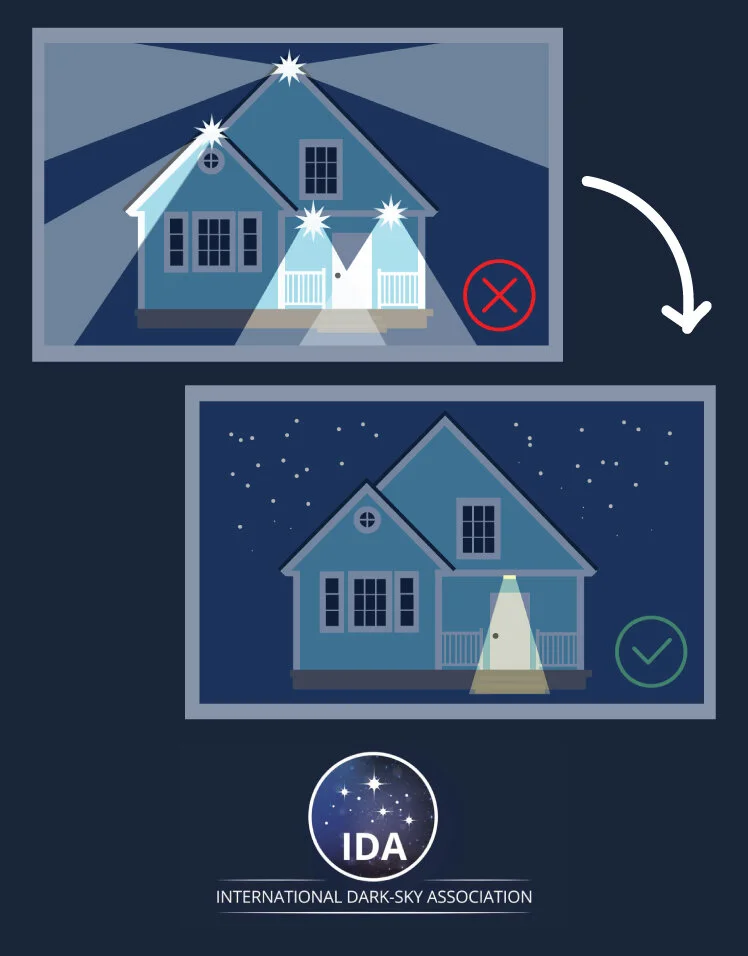What is light pollution?
Light pollution is any artificial light that is not needed and becomes a pollutant that has serious and harmful consequences. Light pollution:
Disrupts the natural cycles of wildlife and plants.
Impacts human health (such as sleep disorders and depression).
Wastes money and energy (as much as 50% of outdoor lighting is squandered.
Blocks out our view of the universe (most people have never seen the Milky Way galaxy – our home galaxy).
Over 80% of the world’s population lives under a light-polluted sky.
Light pollution is increasing at an alarming rate.
Have a neighbor that leaves their lights on all night and prevents you from seeing the stars and inhibits you from getting a good night’s sleep? Here is a link for some information that may help:
My Neighbor's Lighting | International Dark-Sky Association
Ways to preserve our scenic night skies.
We all should have the freedom to view the stars from our own property. We can all do our part in preventing light pollution and protecting our beautiful nocturnal landscape. Here are some steps you can take to keep the night sky dark:
Assess your outdoor lighting around your residence or business. Poor lighting creates light pollution, emits blinding glare, and wastes enormous amounts of energy.
Use only light what you need the light.
Use energy efficient low wattage light bulbs.
Shield light fixtures so that light is directed down and not up.
Use an automatic timer or motion detector to use light only when you need it.
Ask the question, do we even need outdoor lighting?
Encourage your neighbors to participate in smart outdoor lighting.
Assist your local government with ways to improve lighting ordinances.
For additional information on dark sky efforts: www.darksky.org
For additional information on Colorado Stargazing: www.coloradostargazing.com
For additional information on Lake City’s Lake Fork Conservancy stargazing and ways to be good stewards of our environment: www.lfvc.org

